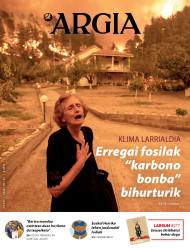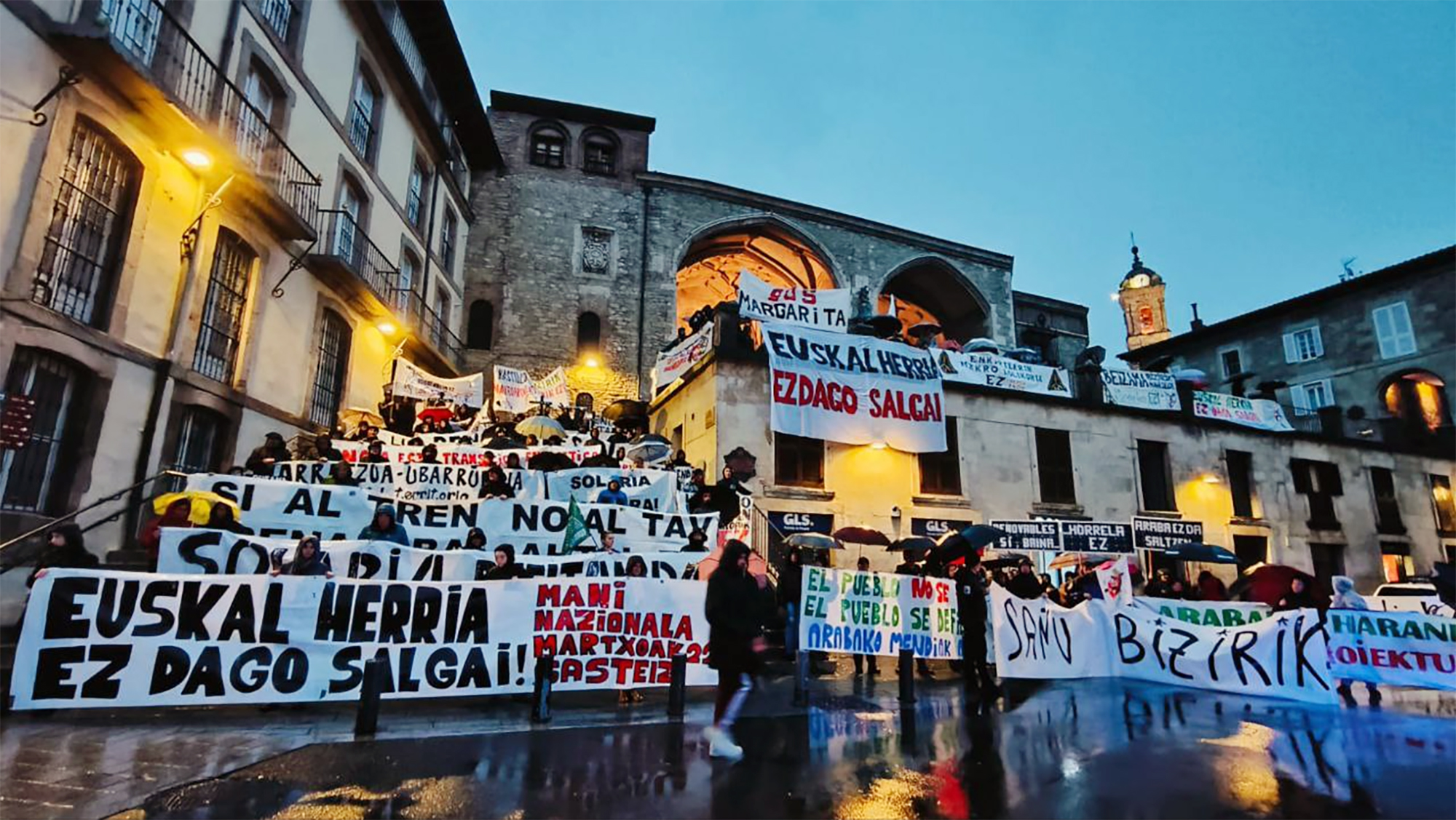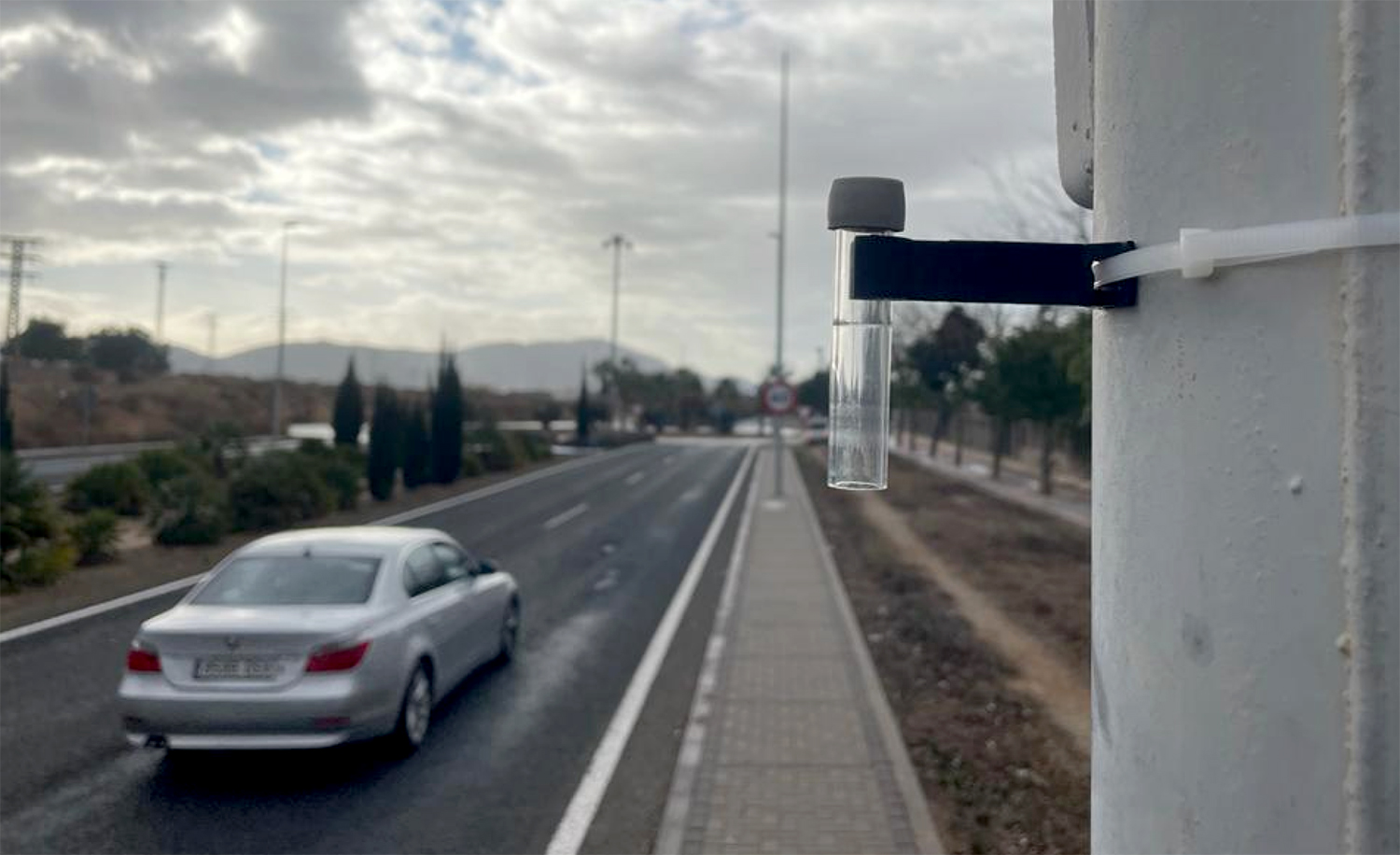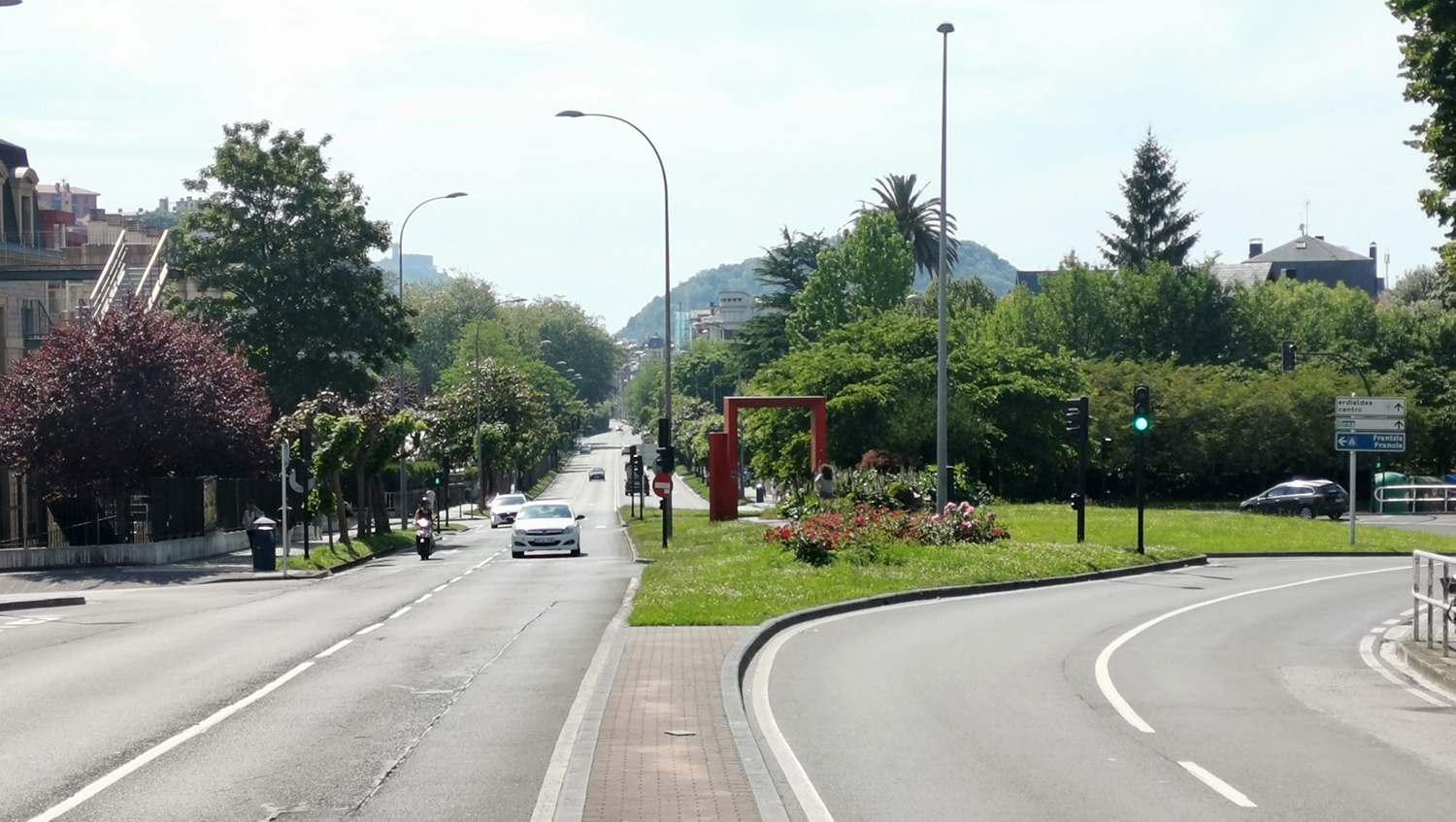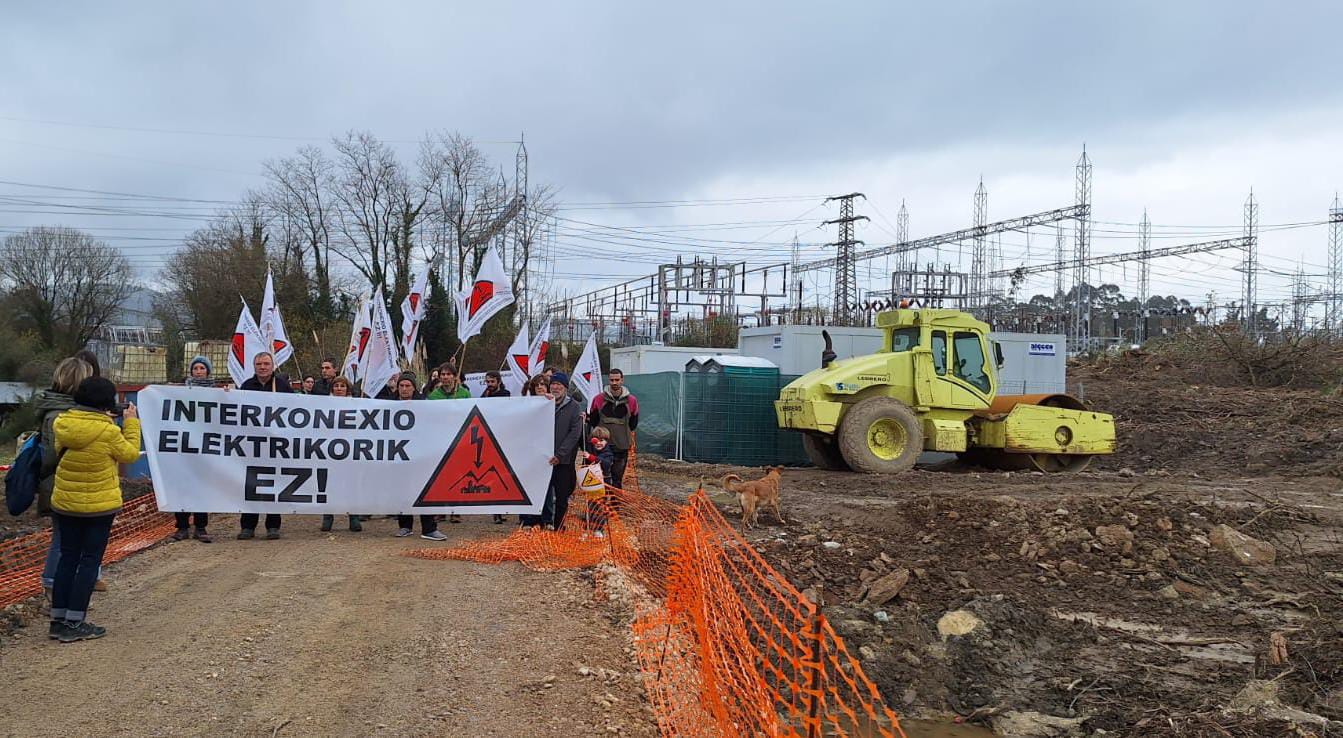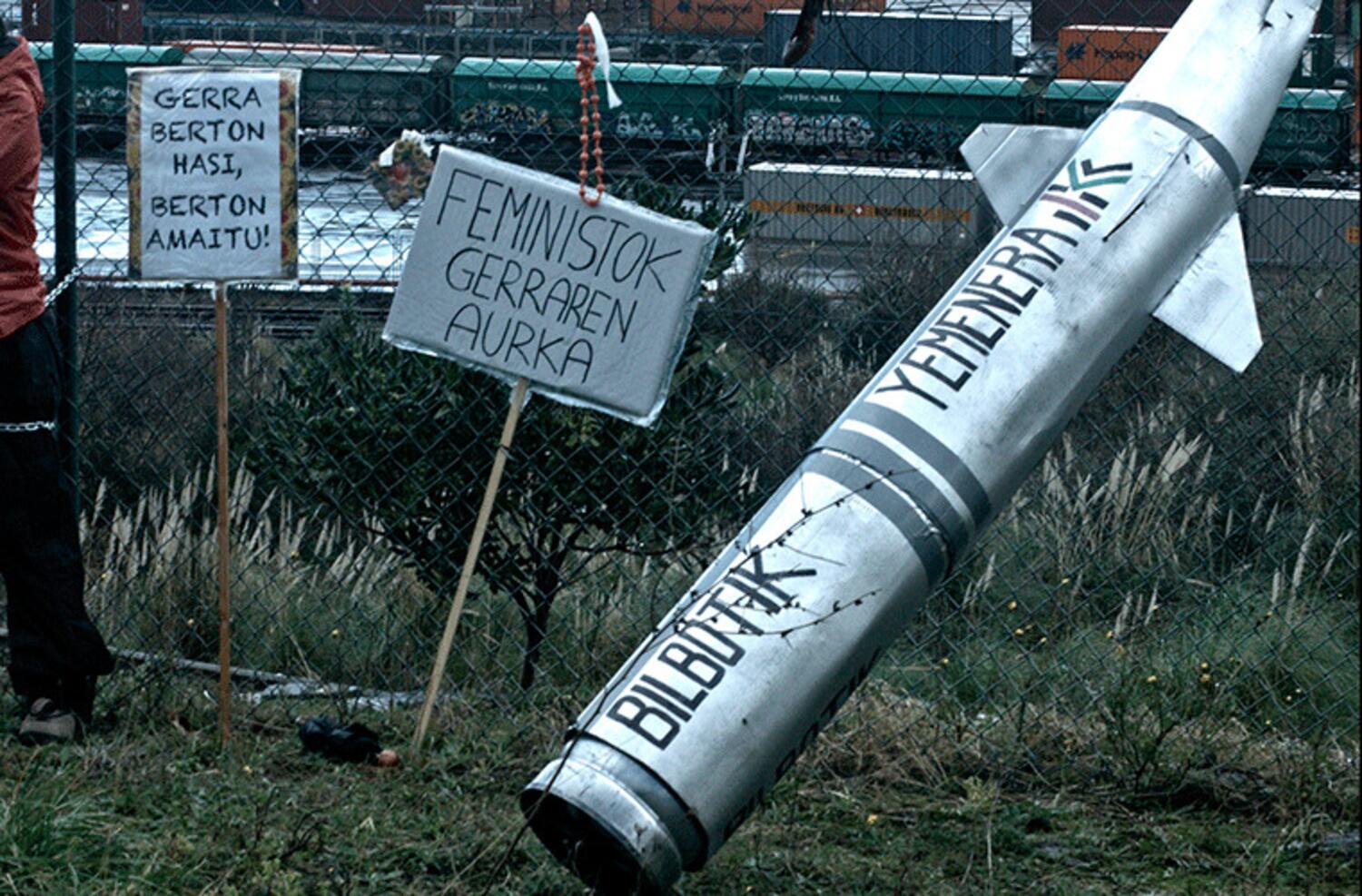“Knowledge is a minor factor in ecological consumption”
- Marije Luengo Valderrey (Bilbao, 1958) is a professor and researcher at the UPV. He has coordinated an ecological behavior study that the university has known over the summer. After twelve years of consulting the students of a master's degree in Business Management (2008 to 2020), it has been studied how this behavior differentiates in times of crisis and kindness.

Ecological behavior. What is that?
It has two legs. On the one hand, awareness of what we can consider as the initial stage, what we call ecological activism: “Instead of putting everything in the same garbage bag and taking it to the brown bin, I will separate the waste; I will use more public transportation and more bicycles, I will go more, I will reuse more, I will be a little more conscious.” In other words, environmentally friendly behaviour at no cost in principle. You're not buying anything, you're just changing attitude or behavior.
And the second leg?
Ecological consumption. When I go shopping, besides being an organic product, I look at the origin, see if it's close. Because if I buy a watermelon from Australia, even though the product has been produced ecologically, my behavior is not very ecological. That is, everything must be sustainable, beyond being “ecological” or “bio”. For example, excessive use of plastic wrapping to surround products.
So when it comes to eco-consumption, does it mean exclusively food?
In principle, everything. Ecological suits, cars (electric, hydrous)... All that takes account of the environment. But what you see most, or what's closest, is what's called the shopping cart: we know that tomatoes are from the neighboring town and they don't have pesticides. It may be harder to know that some of the shoes are made from organic raw materials.
What has been the most relevant conclusion of your research?
Regarding ecological behavior, know that it is a  minor factor and what is not ecological or have information about its possible benefits. The most important thing is motivation and perceived effectiveness. I mean, believing that's good. Rather than knowing or not knowing, thinking I'm doing something good for myself and others. This is fundamental, although we often think that “people don’t buy it because they don’t know, because there is not enough information...” It should also be taken into account that to carry out the research the students of the master's degree were asked, that is, to people of a certain level who were taking a Marketing Ecological course. They know something and they have an interest. But the factor that most influences their ecological behavior, their activism and their consumption is not knowledge, but belief. It is more personal and has to do with identity, with beliefs, with the education received... I do not know what associations or governments count on. And clearly, what is less important at the moment is marketing. Companies are not working properly in this area.
minor factor and what is not ecological or have information about its possible benefits. The most important thing is motivation and perceived effectiveness. I mean, believing that's good. Rather than knowing or not knowing, thinking I'm doing something good for myself and others. This is fundamental, although we often think that “people don’t buy it because they don’t know, because there is not enough information...” It should also be taken into account that to carry out the research the students of the master's degree were asked, that is, to people of a certain level who were taking a Marketing Ecological course. They know something and they have an interest. But the factor that most influences their ecological behavior, their activism and their consumption is not knowledge, but belief. It is more personal and has to do with identity, with beliefs, with the education received... I do not know what associations or governments count on. And clearly, what is less important at the moment is marketing. Companies are not working properly in this area.
They've compared the crisis with the bonanza.
Yes, and in the field of marketing, it is clear that in times of crisis ecological consumption is decreasing. But activism doesn't.
Is this decrease in consumption similar to that of general consumption?
No, it's bigger. Not much, but yes. Because organic products, in principle, are more expensive. When we are in an economic bond, its price does not influence the purchase decision. However, when there is an economic crisis, price is the second most important factor when making the decision to consume or not to consume.
What's the first one?
The first is always the product. One of the things that seems to bother potential green consumers is that organic products (one of the issues that is not well explained) last less. They expire faster. There are people who are conscious, but because of the idea of “I can’t buy all week” they don’t consume green. And marketing doesn't work that way.
They say that the behaviour of green consumers is a complex phenomenon.
The behaviour of any consumer is complex and that of the organic consumer may be even more complex. First because it has to change focus, have a minimum of knowledge and then motivate it. We all have assumed the behavior of the ordinary consumer beforehand: you need, you go and buy. In the case of ecological consumers, many variables influence: society affects them, the family also... There are economic factors, that issue of expiry, and to this day not so much, but they could accuse him of being the first sowing, because his purchase was unusual. Another variable is economic capacity. Here at Getxo, it's easier to find organic products, for example. Because the buyer niche here is bigger. However, it is expanding and now, at least on large surfaces, there are many organic products at an acceptable price.
Women more aware
“We have a more in-depth study on the subject (we intend to start work from September), but in the twelve years of data collection we see significant differences in ecological behavior by gender. The conclusion is that women are more aware. In fact, they attach less importance to price and product than men. Men look much more at the price and the closest access to the product. Motivation is similar in both, but the perception of marketing is very different.”
Do not look for this connection from Ezkio or Altsasu, let alone crossing the Ebro River through Castejón. The connection, or rather the connections, between the Basque Y and the AVE of Navarre is already a reality. It is these links in the plural that should concern us and... [+]
Euskal Herri osoan zehar daude mehatxupean hamaika baso, zelai, mendi zein nekazal lur. Horien defentsan diharduten tokian tokiko plataforma asko bildu dira larunbatean Gasteizen, EH Bizirik-ek deituta, inguru naturalaren “suntsiketaren” eta makroproiektuen... [+]
Dakota Access oliobidearen kontrako protestengatik zigortu du Ipar Dakotako epaimahai batek erakunde ekologista, Energy Transfer Partners enpresak salaketa jarri ostean. Standing Rockeko sioux tribuak protesten erantzukizuna bere gain hartu du.
Sareak nabarmendu du Euskal Herri osoko eragileak daudela bertan eta deialdiak 140tik gora atxikimendu jaso dituela: "Horrek islatzen du zein den gaur egungo errealitatearen urgentzia, lurraren defentsaren beharra eta auziarekiko dagoen konpromezua".
Greenpeaceko kideak Dakota Acces oliobidearen aurka protesta egiteagatik auzipetu dituzte eta astelehenean aztertu du salaketa Dakotako auzitegiak. AEBko Greenpeacek gaiaren inguruan jasango duen bigarren epaiketa izango da, lehenengo kasua epaile federal batek bota zuen atzera... [+]









